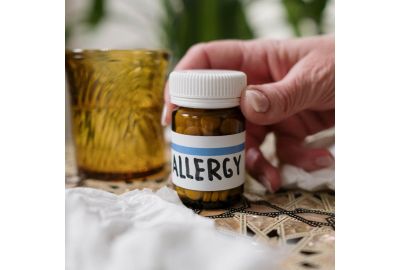Perfume is a common part of our daily lives, adding a touch of fragrance and personality to our presence. However, for those with perfume allergies, this seemingly harmless product can trigger a range of uncomfortable and sometimes severe reactions. In this post, we will delve into the world of perfume allergies, offering insights and tips to help individuals with this condition navigate their daily lives with greater ease.
Understanding Perfume Allergy:
Perfume allergy, also known as fragrance sensitivity or allergic contact dermatitis, occurs when the immune system overreacts to certain substances present in perfumes. The offending ingredients can include a variety of synthetic and natural compounds, such as essential oils, aldehydes, and musk. Common symptoms of perfume allergy include skin rashes, itching, redness, watery eyes, headaches, and even difficulty breathing in severe cases.
Identifying Problematic Ingredients:
If you suspect you have a perfume allergy, it is crucial to identify the specific ingredients that trigger your symptoms. Start by examining the ingredient list on perfume labels. Unfortunately, fragrance formulations are considered trade secrets, and manufacturers are not required to disclose all the ingredients they use. However, you may be able to find clues in the form of known allergens like limonene, linalool, eugenol, and geraniol. Keeping a record of your reactions and comparing them to the perfume ingredients can be helpful in identifying potential triggers.
Fragrance-Free Alternatives:
To avoid the discomfort associated with perfume allergies, consider exploring fragrance-free alternatives. Look for products labeled as "fragrance-free" rather than "unscented," as unscented products may contain masking fragrances that can still trigger allergies. Opt for products specifically formulated for sensitive skin and free of potential allergens. Seek out hypoallergenic soaps, detergents, lotions, and shampoos that are tailored to minimize allergic reactions.
Test Before You Buy:
Before committing to a new fragrance, it's important to test it on a small patch of skin to gauge your body's reaction. Apply a tiny amount of the perfume to your wrist or inner elbow and observe for any signs of redness, itching, or irritation. If no reaction occurs within 24 hours, it's generally safe to use the product. Remember, even if a fragrance doesn't trigger an immediate reaction, it doesn't guarantee that it won't cause problems with prolonged use.
Communicate and Educate:
Informing those around you about your perfume allergy is essential for managing your condition effectively. Speak openly with friends, family, and coworkers about your sensitivity, emphasizing the importance of avoiding heavily scented products when they're around you.
Environmental Considerations:
Perfumes are not limited to personal care products. They can be found in household items such as air fresheners, cleaning products, and candles. Opt for fragrance-free alternatives in these areas as well to minimize your exposure to potential allergens. Additionally, be mindful of your surroundings, as public spaces like malls, airports, and public transportation may have higher concentrations of perfume. Carrying a scarf or mask to cover your nose and mouth can be helpful in such situations.
Consult a Healthcare Professional:
If you're struggling with severe perfume allergies or if your symptoms persist despite taking precautions, it's crucial to consult a healthcare professional. An allergist or dermatologist can provide a comprehensive evaluation, help you identify specific triggers, and recommend appropriate treatment options such as topical creams, antihistamines, or allergy shots.
Living with a perfume allergy can be challenging, but with proper awareness, precautions, and lifestyle adjustments, individuals can effectively manage their condition.










